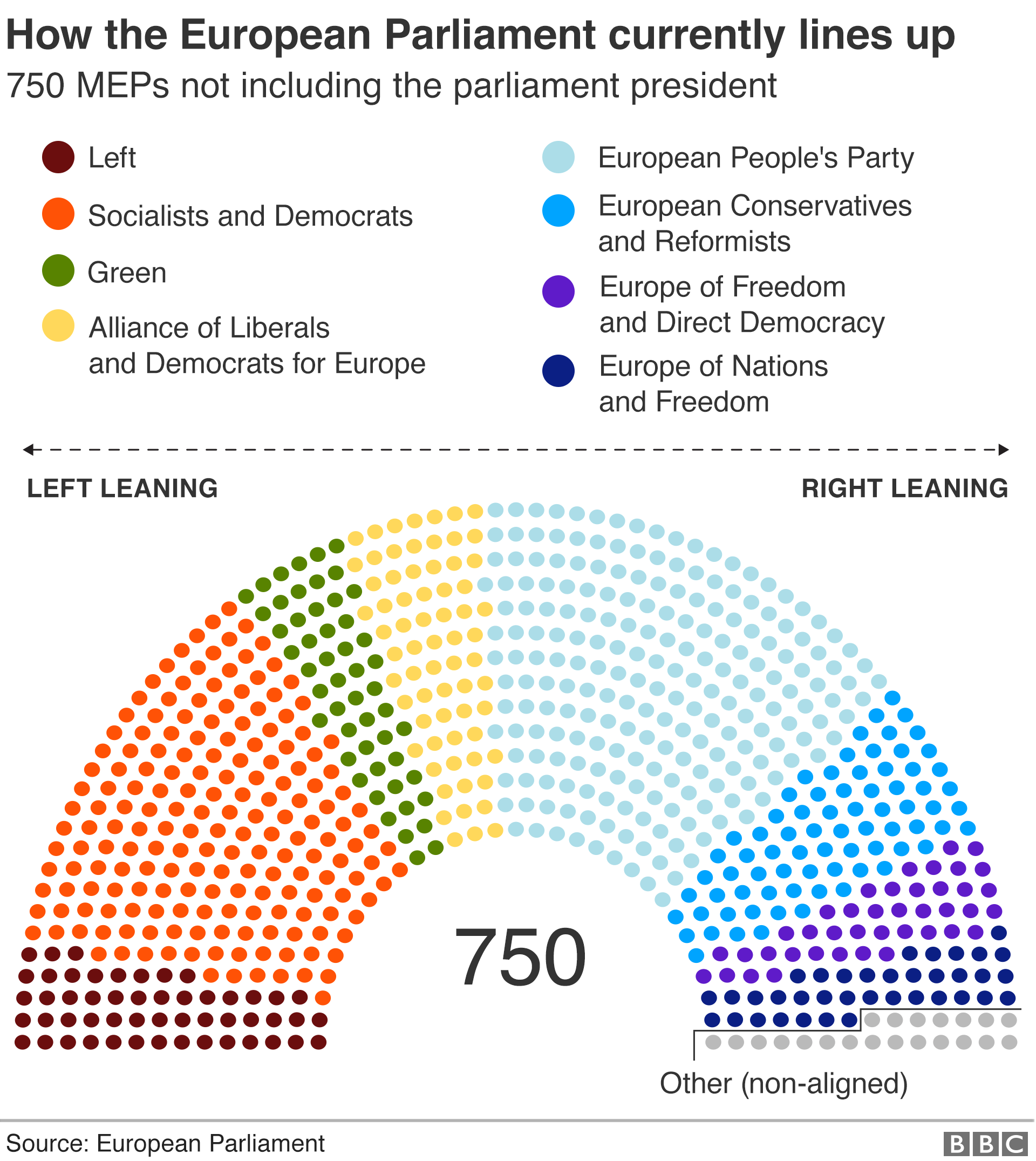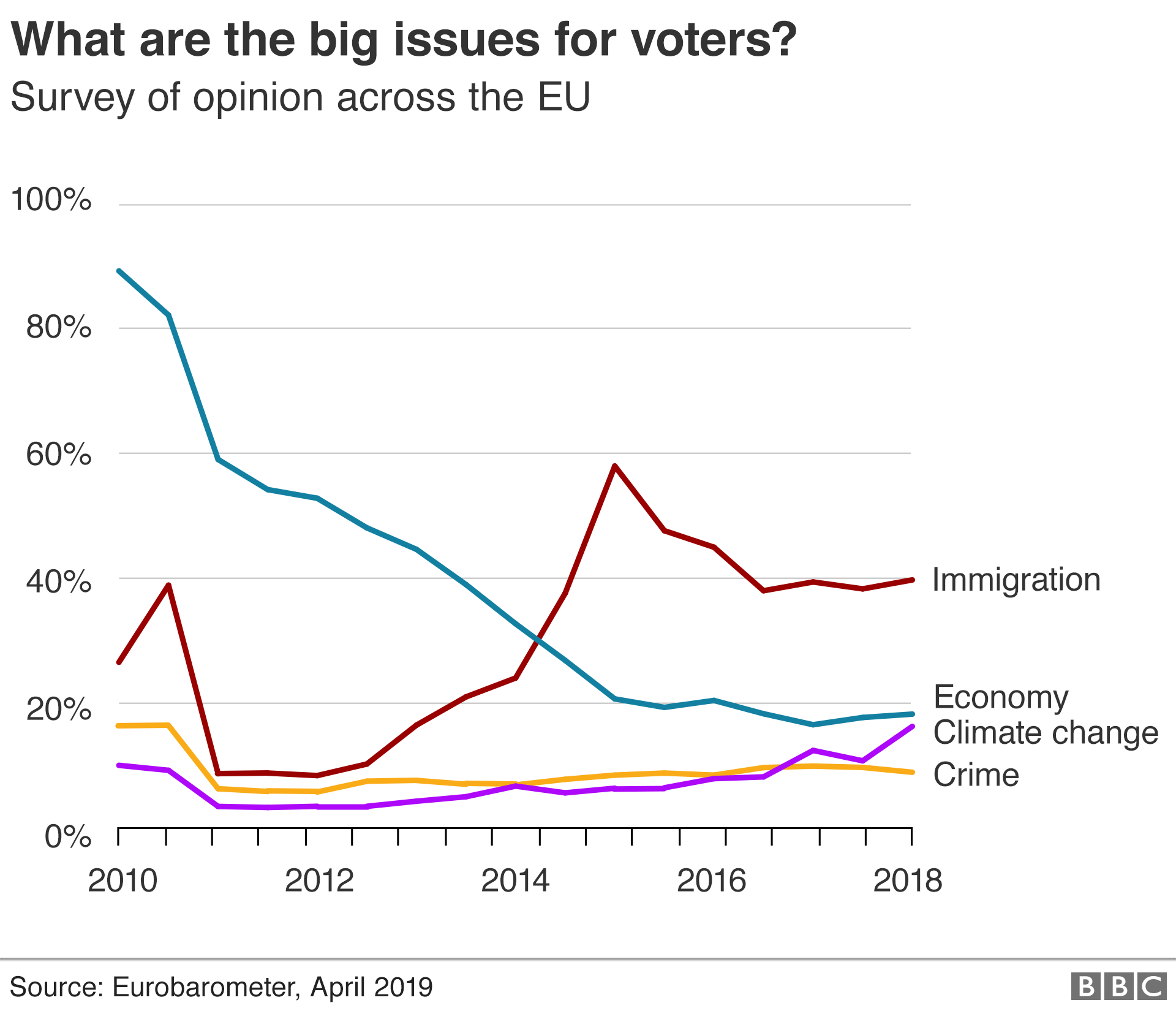Voters across the EU go to the polls on 23-26 May to elect more than 700 MEPs - members of the European Parliament.
MEPs represent more than 500 million EU citizens from 28 countries. The last European elections were held in 2014.
What does the European Parliament do?
The parliament is the only directly-elected EU institution.
After the MEPs are elected, most join bigger political groups in the EU parliament.
The main job of the EU parliament is to pass laws, working with ministers from the member states, who are collectively known as the Council.
MEPs also monitor the work of the European Commission, which drafts EU laws and enforces EU rules.

Is the UK in or out of these elections?
The UK voted to leave the EU in 2016 – and was expected to leave by 29 March 2019 – but UK politicians have been unable to agree an exit deal.
The UK is legally obliged to take part in the elections, unless it approves a Withdrawal Agreement by 22 May, enabling it to leave the EU with a deal.
That looks unlikely, as MPs have already rejected it three times.
So who could win in Europe?
In recent years anti-EU politicians have been gaining ground and - though they are unlikely to gain a majority in the new parliament - more are expected to get elected as MEPs this time.
Those opposed to the EU are often from nationalist or populist parties.
Pro-EU parties say the EU plays a crucial role in big issues such as the environment, renewable energy, workers’ rights, financial stability and combating terrorism.
They say Europe needs to work together, faced with the economic clout of powers like the US and China.

Immigration from non-EU countries surged in importance for voters across Europe from 2015 to 2016, during the migrant crisis.
There was a nationalist backlash, especially in Germany, Hungary, Austria and Poland.
Many voters want more determined action to tackle climate change, an issue highlighted by Greta Thunberg and her Fridays for Future youth campaign.
The eurozone debt crisis gripped Europe between 2010 and 2012, but anxiety about the euro has declined since then.
Which are the countries to watch?
Besides Brexit uncertainty in the UK, anxiety about immigration could influence voting in several countries, to the advantage of nationalist and populist parties.
One of those countries is Italy where the government is a nationalist-populist coalition between Matteo Salvini's right-wing, anti-immigration League and Five Star.
The League has forged an election alliance with the far-right Alternative for Germany (AfD), the Finns Party and the Danish People's Party.
France is also one to watch. It is the first European election for President Emmanuel Macron’s liberal La République en Marche (LREM).
Written by Laurence Peter and produced by David Brown, Steven Connor and Joy Roxas
No comments:
Post a Comment